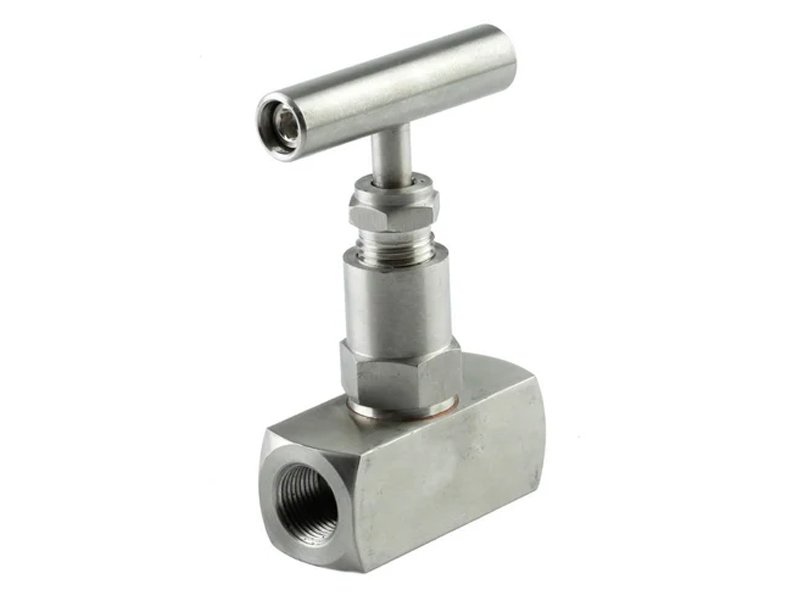Fluir Controls
Needle Valve

GENERAL SPECIFICATIONS :
* Temperature – Up to 200° C ( PFA Lining )
* Temperature – Up to 160° C ( FEP Lining )
* Lining Thickness – Minimum 3mm All Wetted Parts
* Lining spark Test – 15 KV DC
End Connection -0 Flanged End, RF
Flange Drilling - As per ANSI B 16.5, 150 #
Face To Face - As per ANSI B 16.10
Operation - Manual Hand Lever Operated
“ A needle valve is a type of valve that provides precise flow control in a fluid system. It is named for its needle-shaped, tapered disc that is attached to a threaded stem. By adjusting the position of the stem, the opening between the disc and the valve seat can be precisely regulated, allowing for fine control of the flow rate.
Design: Needle valves typically have a slender, tapered disc (resembling a needle) that fits into a corresponding valve seat. The stem is threaded, allowing for precise adjustment of the disc position. This design enables accurate flow control by gradually increasing or decreasing the flow area.
Flow control: The fine tapering of the needle valve’s disc and seat allows for precise flow control, making it suitable for applications where accurate adjustment of flow rate is required. The valve can provide a linear flow characteristic, allowing for gradual changes in flow rate with stem adjustment.
High-pressure capability: Needle valves are often designed to handle high-pressure applications. The tapered design and tight seal between the needle and seat allow for effective sealing and resistance to pressure, making them suitable for applications where pressure control is crucial.
Manual operation: Needle valves are primarily manually operated. They typically feature a handwheel or knob attached to the threaded stem, allowing for easy and precise adjustment of the flow rate.
Material options: Needle valves are available in a variety of materials, including stainless steel, brass, bronze, and other alloys. The choice of material depends on the specific application requirements, such as fluid compatibility, temperature, and pressure.
Versatile applications: Needle valves find application in various industries, including oil and gas, chemical processing, pharmaceuticals, laboratory settings, and instrumentation. They are commonly used in systems requiring fine adjustment of flow, such as flow calibration, sampling, and control of small flows.
Needle valves generally require minimal maintenance. Routine inspections and lubrication of the stem threads may be necessary to ensure smooth operation and prevent any potential issues.




